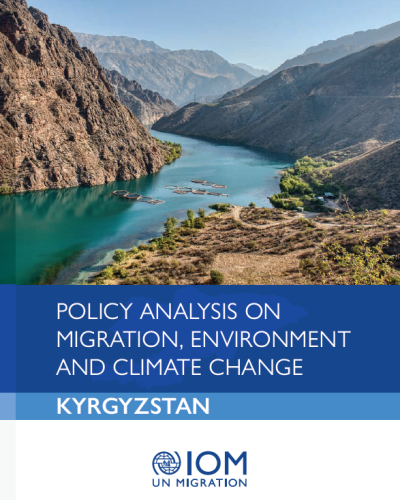Policy Analysis on Migration, Environment and Climate Change

This study aims to increase understanding of how and to what extent migration in the context of climate change and environmental degradation has been mainstreamed in national policies, laws and strategies in Kyrgyzstan. The methodology for the mapping exercise consists of two major steps. First, it identifies relevant policies, laws and strategies in Kyrgyzstan related to climate change, environment, disaster risk reduction (DRR), sustainable development, agriculture, rural development, urban development, gender, migration and remittances. Second, it analyses these documents for content about the MECC nexus. The study links Kyrgyzstan’s policy landscape with global approaches to the MECC nexus – for example, the Twenty-first Session of the Conference of the Parties under the United Nations Framework Convention on Climate Change (UNFCCC), held in November 2015, which mandated the creation of the Task Force on Displacement (TFD) as part of the work programme of the Executive Committee of the Warsaw International Mechanism for Loss and Damage Associated with Climate Change Impacts. The study also analyses the extent to which Kyrgyzstan’s existing policies, laws and strategies are aligned with the recommendations of the TFD. Where relevant, overlaps with the Sendai Framework and the Global Compact for Migration are highlighted. It should be noted that the policies, laws and strategies identified in this mapping exercise are unlikely to be exhaustive. In the review, priority is given to the latest versions of publicly available documents.








